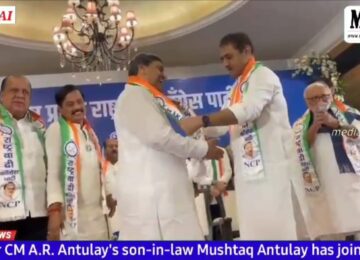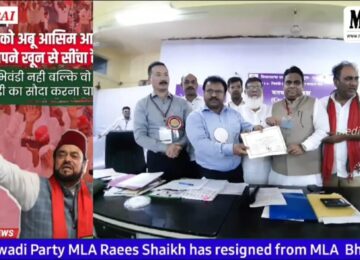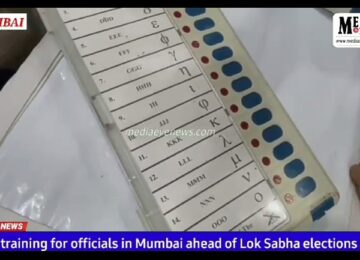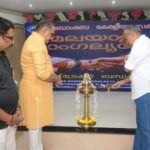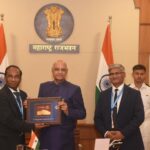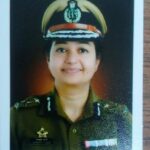Anupama Nair
Our great Prime Minister Modi inaugurated the Amrit Mahotsav or celebration of India’s 75th year of Independence. We will be celebrating this event till 2022. I am going to write a feature on all those great men and women who fought against foreign invasion not just against the British. Today, I am going to write about the “Bundelkhand Kesari” – Raja Chhatrasal, who is unknown to us a great warrior who fought the cruel Mughals, but well known to us as the father of Mastani, after the Bollywood Movie, “Baji Rao Mastani”, became a super hit. It is really unfortunate we forget his greatness.
Budelkhand Kesri, Maharaja Chhatrasal was a warrior who chose to turn against the “cruelest and a man who killed millions for his sport”, Aurangzeb and seek to establish his own kingdom in Bundelkhand. He was born in Kachar Kachnai on the 4th of May in 1649, to Champat Rai and Lal Kunwar. His father had raised “the banner for freedom” a generation earlier but was killed in battle with the Mughals but only after killing the favorite of the emperor, Abu Fazal.
Chhatrasal also raised the banner of revolt against the Mughals in Bundelkhand at a young age of 22, with only an army of 5 horsemen and 25 swordsmen. During the first ten years of his revolt, he conquered a large tract of land between Chitrakoot and Panna on the east and Gwalior on the west. His domains stretched from Kalpi in the north to Sagar, Garah Kota and Damoh in the south.
Chhatrasal was a disciple of Pran Nathji and accepted him as his guru and accepted Pranami Dharma. It was Swami Pran Nathji who told Raja Chhatrasal Bundela, regarding Diamond mines of Panna and thus strengthen his financial position. He also persuaded Chhatrasal to make Panna his capital and arranged his coronation there. When Aurangzeb introduced Jaziya, the freedom loving people of Bundelkhand refused to pay and fight for freedom. As a result, deadly struggle which eventually spread over nearly fifty years, ensued with wave after wave of Mughal and Pathan attacks over the land. The atrocities of the Mughals against the innocent people of my country, only deepened the intensity of the people of Bundelkhand, to fight for freedom and vengeance of the killing of their own.
People who came to collect Jaziya were killed to send a message that they will not pay the tax. Aurangzeb himself led a huge expedition to Bundelkhand to capture them, but was forced to retreat without achieving any lasting success, leaving behind trails of horror and destruction, but still failing to subdue Chhatrasal and the Bundelas. With great happiness I would like to tell you, from then onwards the Maratha attacks began to shake and almost caused the disintegration of the Mughals and, after the death of Aurangzeb, the Bundelas steadily began to gain ground over their adversaries. The cream of the Mughal generals were sent one after the other to subdue the Bundelas but all their campaigns ended up in failure.
Chhatrasal, who was always inspired by the Hindu Hriday Samrat Shivaji’s call of Swaraj and Swadharm wanted to meet him. Shivaji was already the most celebrated and heroic Hindu figure of his times, who had faced the Mughals on equal terms and whose exploits and achievements, courage and idealism had won for him respect throughout India. Chhatrasal offered to serve Shivaji in latter’s war against Aurangzeb. But Shivaji suggested to him to start hostilities against Aurangzeb in Bundelkhand where he would gain many adherents. “Illustrious Chief! Conquer and subdue your foes. Recover and rule your native land …”.
In the second phase of his struggle between 1681 and 1707, Chhatrasal suffered a few reverses. Chhatrasal was able to defeat the Mughals until he was attacked by Muhammad Khan Bangash on December 1728. Chhatrasal was 79 years old when he led his army against Bangash, after a severe battle Chhatrasal was defeated and was forced to retreat to his fort at Jaitpur. The Mughals besieged him and conquered most of his territories.
Chhatrasal made several attempts to ask the Peshwa of the Maratha Empire, Baji Rao I for help. However, the Peshwa was busy in another war and could not help Chhatrasal until March 1729. Chhatrasal send a letter to Baji Rao which said “know you Bajirao! That I am in the same plight in which the famous elephant was when caught by a crocodile. My valiant race is on the point of extinction. Come and save my honor”. Peshwa Baji Rao, who had never lost a war, personally led his army towards Bundelkhand and attacked several Mughal outposts, and their supplies were completely cut off by the swift cavalry of the Peshwa. Bangash who was surprised by the sudden involvement of the Marathas, sent several letters to the Mughal emperor for aid, however upon being denied any help he started negotiations with Chhatrasal and Bajirao. Bangash was allowed to retreat on the condition that he would never return, or show aggression towards Bundelkhand. Chhatrasal rewarded the Peshwa with large tracts of lands and diamond mines in Bundelkhand which helped the Marathas to gain access in Central and Northern India.
It is well known that the king’s daughter Mastani fell in love with Baji Rao and became his second wife. Their love story inspired many folklores, ballads, films etc. The most popular was the film Baji Rao Mastani, starring Ranveer Singh and Deepika Padukone.
Before his death, Chhatrasal bestowed Mahoba and the surrounding areas to his son-in-law in return for Baji Rao's assistance against the Mughals. Chhatrasal, also gave an army of 5,000 men under the service of the Peshwa in Pune. Chhatrasal also paid Rs. 12 lakh as a tribute to the Maratha Emperor so as to establish a long-term relationship with Royal family of Satara.
When he died in 1731, at the age of 81, the Mughal rule from Bundelkhand was wiped off completely. Chhatrasal was an inspiration to successive generations of Hindus and an apt lesson to us “freedom is not something that can ever be taken for granted and can be preserved only by endless and continuous caution”. It shows us that the endless waves of cruelty and barbarity unleashed on us by Invaders however, failed to destroy or subdue our innate love for freedom and dharma. What a great warrior he was to defeat the invaders. We must never forget such great men.



